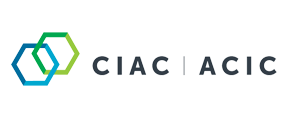CIAC pleased to see several items included in Fall Economic Statement to improve investment in sector
November 04, 2022
The Chemistry Industry Association of Canada (CIAC) was pleased to see several of its recommendations from its Pre-Budget Consultation Brief included in the federal government’s Fall Economic Statement on November 3, 2022.
This includes:
• Investment Tax Credits for Clean Technologies and Clean Hydrogen
• Canada Growth Fund (CGF) acknowledged first step to responding to the US Inflation Reduction Act Accelerate technology deployment in low carbon hydrogen and carbon capture, utilization, and storage (CCUS);
• Capitalize on Canada’s abundance of natural resources and strengthen critical supply chains;
• Launching a Canadian Innovation and Investment Agency and review on the Scientific Research and Experimental Development (SR&ED) tax incentive program;
• Advanced Manufacturing Competitiveness and Building on Canada’s Critical Minerals Strategy.
“We welcome these measures in the Fall Economic Statement. As recognized and acknowledged, these are the first steps in responding to the U.S. Inflation Reduction Act (IRA). The IRA has tilted the playing field to the US, and Canada must address the significant gaps that exist to secure meaningful new investment,” said Bob Masterson, President and CEO of CIAC.
He said the sector would have liked to see the government specifically address the CCUS investment tax credit under consultation. Compared to the U.S., Canada continues to have a disadvantage when considering similar CCUS investments. “These are just a few of the enabling measures required to secure new investment in Canada. The transition to net-zero is no longer a question of environmental policy; it is squarely a question of investment policy and Canada’s investment competitiveness,” Mr. Masterson said.
Currently, there is $30 billion-worth of net zero investment proposals in Alberta and several investment proposals in battery chemistries in Quebec and Ontario. To see these projects move to a final investment decision and built infrastructure as quickly as possible, several details in the Fall Economic Statement need to be finalized, he said.
More than 95 per cent of all manufactured products rely on chemistry and our sector plays a crucial role in the supply chain for nearly all manufacturing in Canada. We are the pathway for other sectors to achieve their net zero goals and decarbonizing chemistry sector production and downstream supply chains will require significant investment in new and existing facilities.
CIAC looks forward to continuing to work with the government in the lead up to Budget 2023 to implement tangible measures to drive new investment in Canada’s net zero economy.





